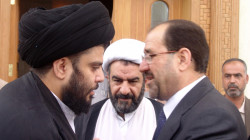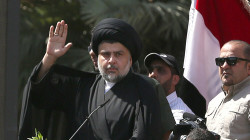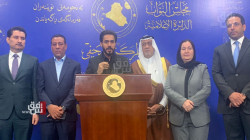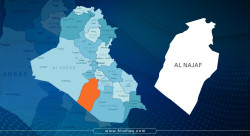Sadrist movement on doubts voiced on the election integrity: tempest in a teacup
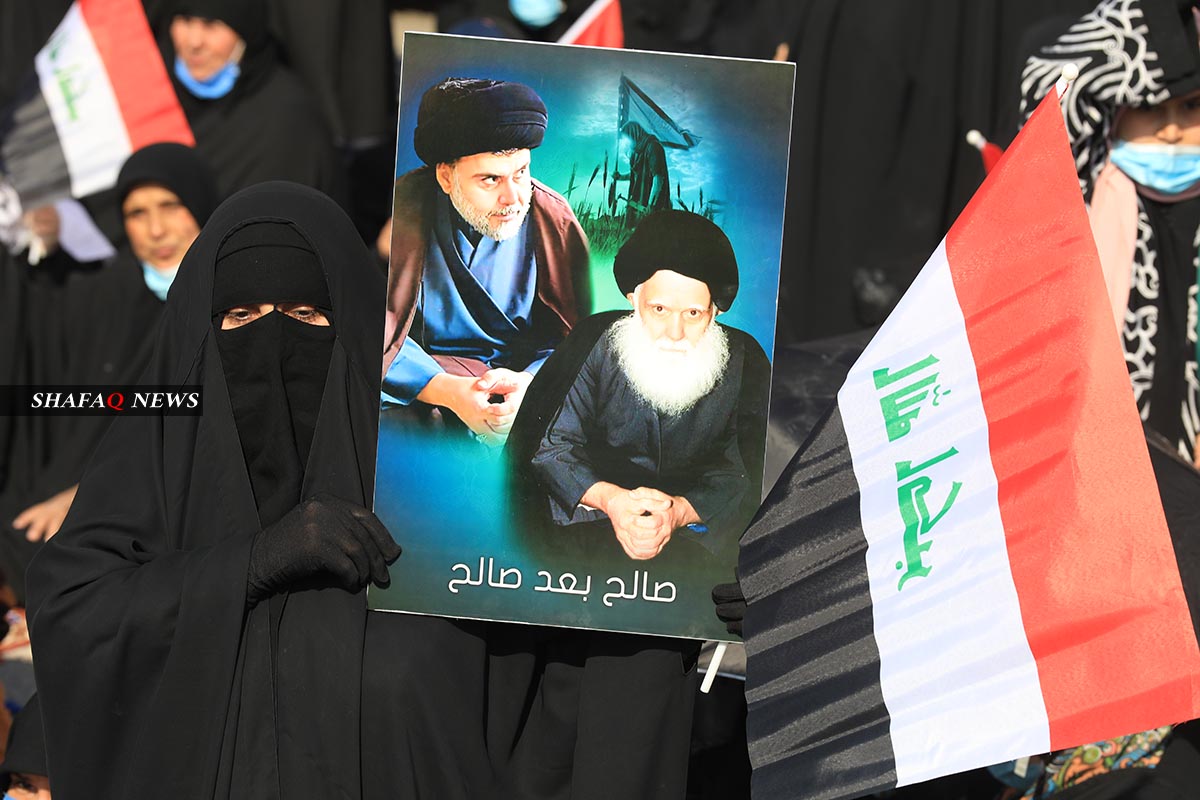
Shafaq News/ A source close to al-Hanana, the headquarters of the Sadrist movement's leader Muqtada al-Sadr, said that the rejection of the poll's results is merely a tempest in a teacup, hinting at the possibility of naming a non-Sadrist Prime Minister.
"All the forces and blocs questioning the results of the polls will acquiesce to the outcomes of the ballot boxes. The drama they arouse on the election fraud will end as soon as the final results are announced and the sponsors calm down."
"The doubting parties will settle for a ministry or two. They are only attempting to appeal to the people's emotions by raising dust around al-Hashd al-Shaabi [Popular Mobilization Forces-PMF] dissolution. In fact, the PMF masses that they relied upon have failed them and refrained from casting their ballots because those forces distanced themselves from the problems the PMF masses suffer from."
"The sponsors of those parties logistically and financially were astonished by the distance between them and their proponents. The tempest in the cup will calm down, the matters will settle down, and they will eventually accept the reality as it is."
"Most of the victorious parties will establish an alliance with the Sadrist movement, which enables it from forming a cabinet swiftly," the source continued, "an independent candidate who is accepted by all parties may be named. However, a Sadrist prime minister is more likely."
"Time will spawn many surprises to those attempting to fish in troubled water. But those surprises fit the aspirations of the Iraqis, and a government will be formed in no time without external interference or favoritism."
Al-Sadr's representative in Dhi Qar, Ibrahim al-Jaberi, undermined "the attempts of some parties to picture the dissolution of the PMF as an urgent matter. It is a political issue and subject to laws and legislations, not to moods and emotions on social media to defame the winning bloc."
Al-Jaberi called the parties voicing doubts about the integrity of the polls to file appeals at the Independent High Electoral Commission to look into their complaints.
"Forming a government is an Iraqi affair. Iran cannot interfere; neither Saudi Arabia nor Turkey can do. Countries at the borders of Iraq or in the region can intercept the course of the political process in the country. The leader [Muqtada al-Sadr] said, 'we want a Sadrist Iraqi government'. It shall be as he wanted."
"The winning blocs (Kurds, al-Taqaddom) expressed willingness to form an alliance with the Sadrist movement to form a government after announcing the outcomes of the appeals submitted by all parties."
Leading Shiite parties in Iraq have announced their collective rejection of the results in Sunday's parliamentary elections after the initial evidence appeared to suggest a collapse in their vote share.
Al-Fatah alliance, which is composed of supporters of the country's al-Hashd al-Shaabi (Popular Mobilization Forces-PMF), in particular denounced the results as "fabricated" while one armed faction appeared to threaten violent action in response.
According to initial results released by the Iraqi High Electoral Commission (IHEC), the Sadrist movement led by the populist cleric, Muqtada al-Sadr, came out ahead with 73 of the parliament's 329 seats, in what had been an election with a record low turnout of 41%.
In a statement on Tuesday, Hadi al-Ameri, leader of al-Fatah, called for a joint response against the election results from other Shia political factions.
"We do not accept these fabricated results, whatever the cost, and we will defend the votes of our candidates and voters with full force," said his office.
Al-Fatah saw its share of the seats in parliament, where it had previously been the second largest party, decline sharply from 48 to 14 seats.
Seperately, a spokesperson for Kataib Hezbollah, an armed Iran-backed group labelled a terrorist organisation by the US, called for their supporters to oppose the results and warned they would "stand firmly and insist to restore things to their rightful place".
Kataib Hezbollah'z Huquq party has won one seat.
"The brothers in the Iraqi resistance should prepare for a sensitive stage that requires wisdom and close observation from us," said spokesperson Abu Ali Al-Askar, using a term that refers to groups opposed to US and Israeli influence in the region.
"Be sure that no right will be lost behind it, so do not tire, do not get bored, and do not compromise, and victory will be your ally with the help of Almighty God."
A number of other Shia political parties also faced a steep decline in their vote share, leading to complaints of irregularities.
The political bloc led by former Prime Minister Haider al-Abadi and cleric Ammar al-Hakim also co-signed a statement with a number of Shia political parties rejecting the election results and warning that they would "take all available measures to prevent the manipulation of votes".
Late on Monday evening, a meeting was held at the home of former prime minister and leader of the State of Law bloc Nouri al-Maliki, which was attended by most of the leaders of the Shia political forces and the leaders of the Iran-backed armed factions, where they discussed how to respond to what they deemed a "coup" by Sadr, backed by a "British-American plot".
Reports emerged about an intention to "escalate" the situation so that al-Sadr and Prime Minister Mustafa al-Kadhimi understant that "what happened will not pass without consequences".
"Some leaders suggested that we proceed with the legal procedures and focus on the options available to form a bloc larger than Muqtada's bloc, and some of them insisted that the security escalation is the best option at this stage," a leader of an armed faction said.
"Kataib Hezbollah insist on resorting to military options, but others have reservations about this option and the majority of them do not support it."
